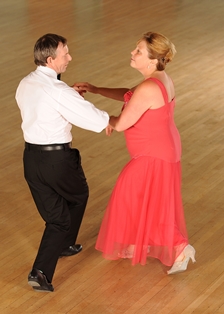By Neil Phillips.
You set a goal. In your mind, the odds aren’t very good that you’ll make it so you don’t tell anyone and risk having to hang your head as a failure. What you don’t realize is that you are more likely to fail.
You are minimizing the consequences of failure. When things start to get tough, you will say to yourself, “It’s a bad time. I didn’t set this up right. And besides, nobody knows if I quit.” At this point, you’ve started training yourself to fail. You are creating a mindset that says “it’s okay not to succeed.” The next time you come up with a tough goal, you will follow your precedent and fail again.
As individuals, we are bad accountability partners for ourselves. Friends and relatives don’t do much better. They don’t want you to feel bad, so they start to soften the blow of failure before it even happens. Your brother (we’ll call him, Bob) will start to say things like, “You’ve already done better than most people,” or “You set your goal too high. You’ve already succeeded.” They make it easier to fail.
What you need is a great accountability partner. A great accountability partner is a lot like a great dance partner. They need you to succeed, and you need them just as much. Your partner wants to see you make your goal and they realize it is really up to you. Your partner loves the dance and knows that only when you look good grooving to the music, they will too.
Special Note: Coaches make the best accountability partners. Assuming you want someone other than a coach, here are four characteristics of a great partner.
- They have a similar goal. Find somebody who wants the same thing you do. They will know how hard things are. They will also know when you are coasting.
- They are committed to success. Tell them right from the beginning that you don’t want to hear about “great effort.” You want to hear about wins.
- They meet your needs. Accountability only works when there are check-in times. So set up the opportunity to check in and talk. You’ll know very quickly if they are committed to success or just said they would help to stop you from talking.
- They will praise appropriately. You want to hear when you are doing well. You want the acknowledgment. You don’t want false praise. Make sure your partner understands the difference in your mind.
If you honestly want to make a change, work with a coach or find a strong accountability partner. What will you change? Who will you ask to be your partner?
Wanna Dance? Team Connections Pro Wants To Be Your Partner
Our hope at Team Connections Pro is that we can provide the support you need to move your business to where you want it to be. Somedays you need information; somedays you need someone to listen. And who doesn’t need someone to care about you? At Team Connections Pro, we do all three. Why not join for a month and check it out? If you don’t feel supported, you can cancel your subscription at any time with no notice.



